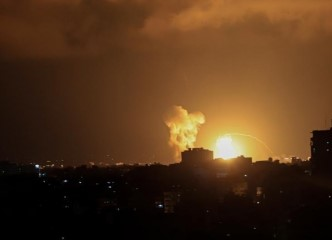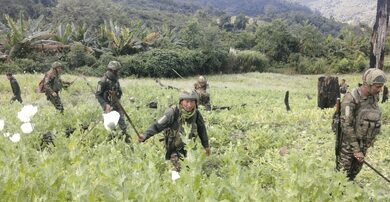Questions over recent airstrikes inside Afghanistan after Pakistan denies hand

New Delhi, Nov 26 (IANS) Pakistan military’s reported denial of Taliban claims that it carried out airstrikes in Afghan territories on the intervening night of Monday and Tuesday (November 24-25) comes amid visibly increased deployment of armed forces and equipment along the volatile border.
The denial also raises questions over the bombings amidst rising tension in the region, thus implying either a faux pas or foul play, or a possible attempt at reducing hostilities. The Durand Line, said reports, witnessed a buildup of heavy artillery, troop deployment, and drone surveillance, with anticipation of an imminent cross‑border operation following the aerial bombings at Khost, Paktika and Kunar provinces.
However, both Afghanistan and Pakistan media have reported that Islamabad has publicly denied carrying out the latest air strikes. Regional news outlets said that Pakistan’s military called the Afghan claims “baseless”.
Pakistan army spokesperson Ahmed Sharif Chaudhry was quoted as stating on Tuesday that Islamabad “never targets innocent civilians” and insisted that it officially confirms its actions whenever it launches an attack. He suggested the Taliban’s allegations may be linked to what he described as internal tensions within the group.
A similar attack last month had seen Afghan Taliban fighters retaliating with an attack on Pakistan’s border posts on October 11 that led to the stoppage of all trade and transit across the volatile Durand Line.
Pakistan’s Tuesday remarks came after Kabul accused Islamabad of violating Afghanistan’s airspace in a series of midnight-pre-dawn strikes. The Taliban said the attacks killed 10 people, including nine children and a woman, in Khost, and wounded four civilians in Kunar and Paktika.
Alleging Pakistan’s involvement, it had described the attack as a violation of Afghanistan’s airspace and a breach of international norms.
The Afghanistan International news website quoted Taliban spokesperson Zabihullah Mujahid declaring that they viewed the strikes as “aggression” and a crime, warning of responding “appropriately” at a time of their choosing. He added that the cross-border attacks undermined established regional principles and warned that the Taliban would not allow such actions to go unanswered, said the report.
Renewed troop and equipment movements are said to have been seen along multiple frontier sectors, including Chaman‑Spin Boldik, Angoor Adda, Kurram‑Nangahar and Torkham.
A social media post by the United Nations Assistance Mission in Afghanistan (UNAMA) mentioned the strike on its X handle, but drew questions for not naming a perpetrator. “At least 10 civilians were killed and six injured in airstrikes in Khost and Kunar provinces in #Afghanistan last night. Most of the victims were children. UNAMA again calls for respect for international law to protect civilians and prevent civilian harm,” it posted on Tuesday. One user shared some names, claiming, “These are the 10 civilians martyred by the Pakistani Military Regime’s airstrikes in Khost. Children, infants and a mother…” Another asked, “Why aren’t you saying WHO carried out the airstrikes?” asserting, “Pakistan did it.”
Reports have, however, mentioned Pakistani authorities saying that they have carried out targeted operations near the border in recent days, terming these as counter‑terrorism actions tied to recent attacks inside their territory. These raids were supposed to have resulted in dozens of militants being killed in Kurram and adjacent districts.
Simmering tension has led to several skirmishes along the disputed line, leading to intermittent closing of the border, thus affecting one of its major transit points, especially for trade, for landlocked Afghanistan.
Now, trade remains suspended through the Afghanistan-Pakistan border since November 12, with Kabul emphasising that the business community identify alternative routes. Efforts by regional players to act as mediators between the neighbours did result in a temporary ceasefire agreement between Kabul and Islamabad, but they failed to reach a consensus on specific ways and means to implement peace, despite two consecutive meetings.
–IANS
jb/uk




